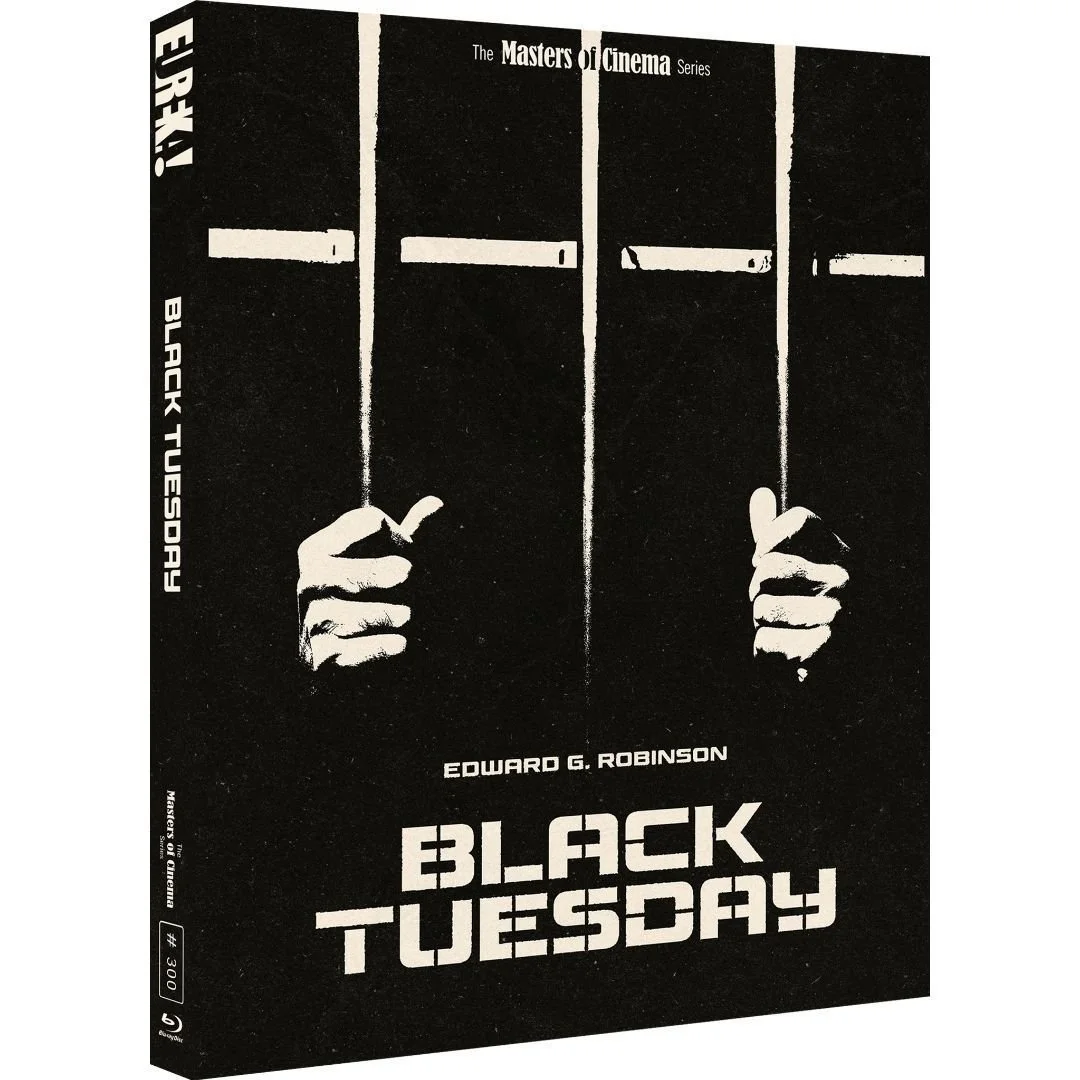Black Tuesday │ Eureka Entertainment
by JAMES CAMERON-WILSON
In January of this year something extraordinary happened. For the first time, United Artists’ Black Tuesday was shown on British television, having been originally banned for its violence. The film noir classic of 1954 stars Edward G. Robinson, one of the four giants of Hollywood’s gangster genre, alongside James Cagney, Humphrey Bogart and George Raft. At the time that Edward G. starred in Black Tuesday, he was in something of a career slump, but, in spite of his modest physical stature, he still manages to bring to bear his characteristically brutal persona. Perhaps even more surprising is how good the film is, a sort of forgotten masterpiece from the Argentinean helmer Hugo Fregonese who, in his time, had directed such stars as Gary Cooper, James Mason, Joel McCrea, Barbara Stanwyck, Robert Taylor, Lee Marvin and Stewart Granger, but who is largely forgotten today, in spite of his artistry and international sweep. To be completely honest, I was unaware of Fregonese and was shocked, both by his creative invention apparent in the film and by the high regard he is held in some circles. There is a brilliant video essay on the filmmaker in the bonus material of this superlative release from Eureka as part of their Masters of Cinema series, released in the UK on Blu-Ray for the first time after a thorough restoration. As so often – well, always – with Eureka, the pictorial renovation is second-to-none, bringing to modern audiences a chance to sample a film in all its pristine glory. The video essay on Hugo Fregonese is by the film historian Sheldon Hall, who has an encyclopaedic knowledge of cinema and an ease in front of the camera which is addictive, his commentary augmented by film footage and colourful posters of the period.
Black Tuesday itself refers to the day of the week when prisoners on Death Row (in New Jersey) were taken to the electric chair for their misdeeds. The film opens with an incredible single take in which we see Edward G. Robinson as king racketeer Vince Canelli patrolling his cell like a big cat, followed by images of Peter Graves, his accomplice, and other cellmates – set to the gospel lamentation of the title song sung by the actor Don Blackman, a black man whose image is the first to greet the screen. The bars separating the men from their captors is a visual motif echoed throughout the film in various guises, along with the almost obsessive use of diagonals. In addition, the deep focus was still very avant-garde, the high-speed Tri-X film stock used for the first time in 1954, accentuating the high contrast of the images. In the words of the historian Imogen Sarah Smith, Black Tuesday is one of “the bleakest and harshest entries of the entire cycle” of film noir gangster thrillers, with Edward G. Robinson’s thug an unremittingly vicious killer, the actor’s expressive features – recalling those of an intelligent bulldog – revealing depths of latent sadism.
Considering that the film came out in 1954, I was personally shocked by how brutal it was, its almost throwaway examination of Death Row as the electric chair is readied for action, while the gallows humour resorts to such improvised offhand remarks as “may he roast in peace.” This is tough stuff, but is so visually seductive that it holds the attention right up to the rather hurried conclusion. The script, by Sydney Boehm (who had just a year previously written the screenplay to Fritz Lang’s The Big Heat), is a taut, neatly constructed thing full of moral ambivalence bouncing off the walls like gunfire.
But what struck me most was the gnarly presence of Edward G. himself, who happens to be the first actor I ever saw on the big screen, when I attended the British children’s film Sammy Going South, directed by Alexander Mackendrick. Peter Graves is also very good as Vince Canelli’s cellmate, Peter Manning, who a year earlier had appeared in Hugo Fregonese’s The Raid alongside Van Heflin, Anne Bancroft and Lee Marvin. I would also like to point out the excellent on-screen audio commentary by film noir expert Sergio Angelini, whose annotation was so beguiling that I found myself watching the movie a second time deep into the night, as if seeing Black Tuesday in a whole new light.
Eureka Entertainment’s release of Black Tuesday is now available on Blu-ray
EUREKA ENTERTAINMENT is the leading independent distributor of classic silent/early films in the UK. In 2004, Eureka! established the award winning Masters of Cinema Series, a specially curated director-led Blu-ray and DVD collection of classic and world cinema using the finest available materials for home viewing. In 2014, Eureka! established Eureka! Classics intended to highlight a broader selection of classic and cult cinema, and in 2017, Eureka! established Montage Pictures, a label celebrating ground-breaking and thought-provoking world cinema from new and upcoming directors.

